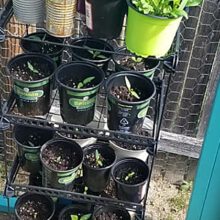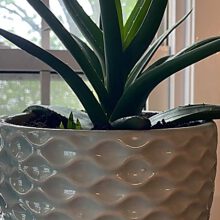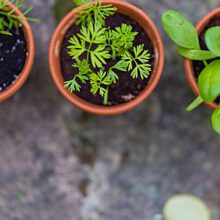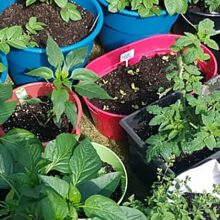Best Soil For Container Gardening
So, what is the best soil for container gardening? Is it compost or manure? Which type of fertilizer should you use? And how much should you spend on your initial potting mix? Let’s take a look at these questions and some answers.
What is the best soil for container gardening? Compost is by far the best soil for container gardening. Not only is it nutrient rich and free of pests, it is also very versatile. You can easily make your own compost in your own backyard or find a good organic potting soil containing a great balance of nutrients. But if you are just starting out, then a good commercial compost would work well.
Potting soil should be rich in moisture content and should drain quickly. It should also provide good drainage and hold the right amount of water for your plants’ roots to thrive. The best potting media are those that contain a medium level of clay or compost and are free of toxic chemicals. Beneficials like earthworms help break down organic matter, break up clumps and help release the nutrients trapped in the soil.
Your best soil for container gardening should be free of lime and magnesium, as these two elements are potential harmful to plant growth. The pH level of your best soil for container gardening should be neutral to provide a healthy growing environment. The water-holding capacity of your potting media should be appropriate for your plants’ needs and be able to resist extreme temperatures and moisture fluctuations. You should also check for fast draining solids like peat moss and straw to reduce water loss from the root system.
As you prepare your soil mix for your container garden, don’t forget to double check the directions. Some soil mixes are designed for certain plant types, and if you’re changing them, double check to ensure proper mixing and watering for your container garden. Changing the soil structure can affect the growth of your plants and prevent them from developing properly. The best soil for container gardening will work with your existing soils, provide the nutrients needed and retain the correct moisture level for thriving plants.
Most importantly, the soil in your container garden must be free of organic matter. This is to protect the roots from disease and other pests that can destroy your plants. Soil that is full of organic matter and bacteria is more beneficial than dry, chemical-laden soil. Also, add plenty of organic mulch. A simple layer of pine needles, green leaves or grass clippings on the surface of your soil will do wonders for its health and look. Healthy mulch prevents soil erosion and helps keep water in the soil for longer periods of time, which is crucial to container garden plants’ survival.
For container gardens grown in containers, the best soil is organic, slow-release fertilizer. Don’t apply compost to your soil until after the first crop has been harvested. Compost, when applied to your soil too early, can clog the pores of the soil and slow down the release of nutrients. Also, don’t apply manure to your soil until after the first crop is harvested. Commercial farm fertilizers, especially the ones containing nitrogen, will burn your plants.
After you’ve found the best soil for container gardening, use a light hand and make sure you water the soil deeply. Watering your soil deeply keeps it moist, but avoid overdosing by watering a few times too close together. Be sure to wear heavy gloves when mixing and applying compost and manure as it will burn your skin. And finally, be sure to protect your plants and the soil in your container garden by wearing gloves and a dust mask. Good luck container gardening!



